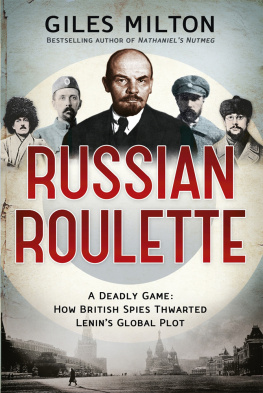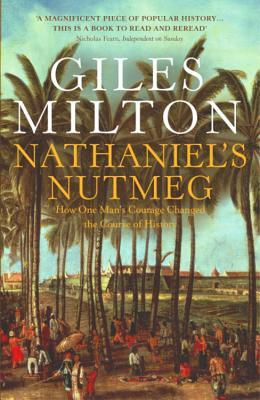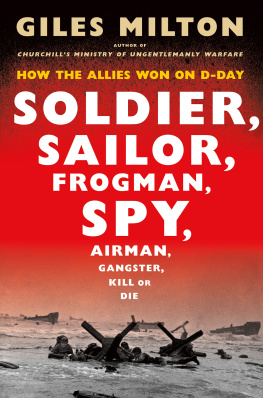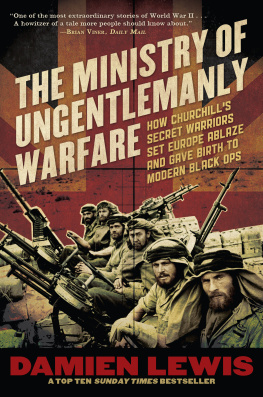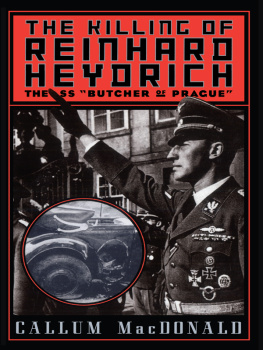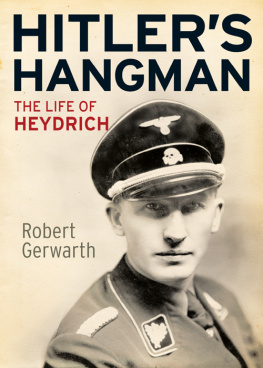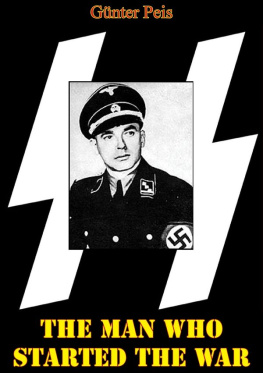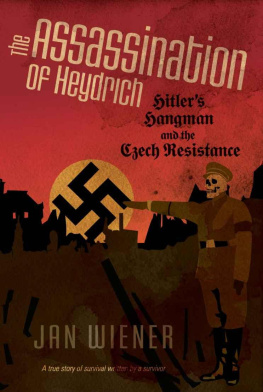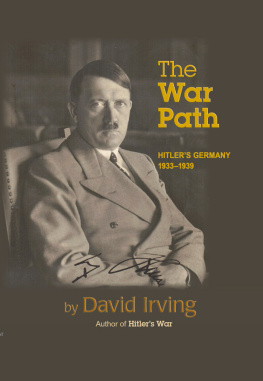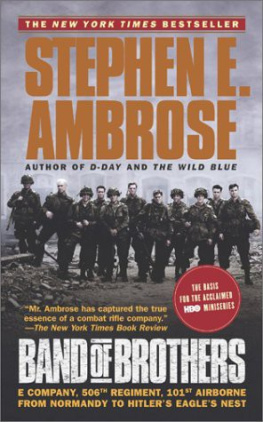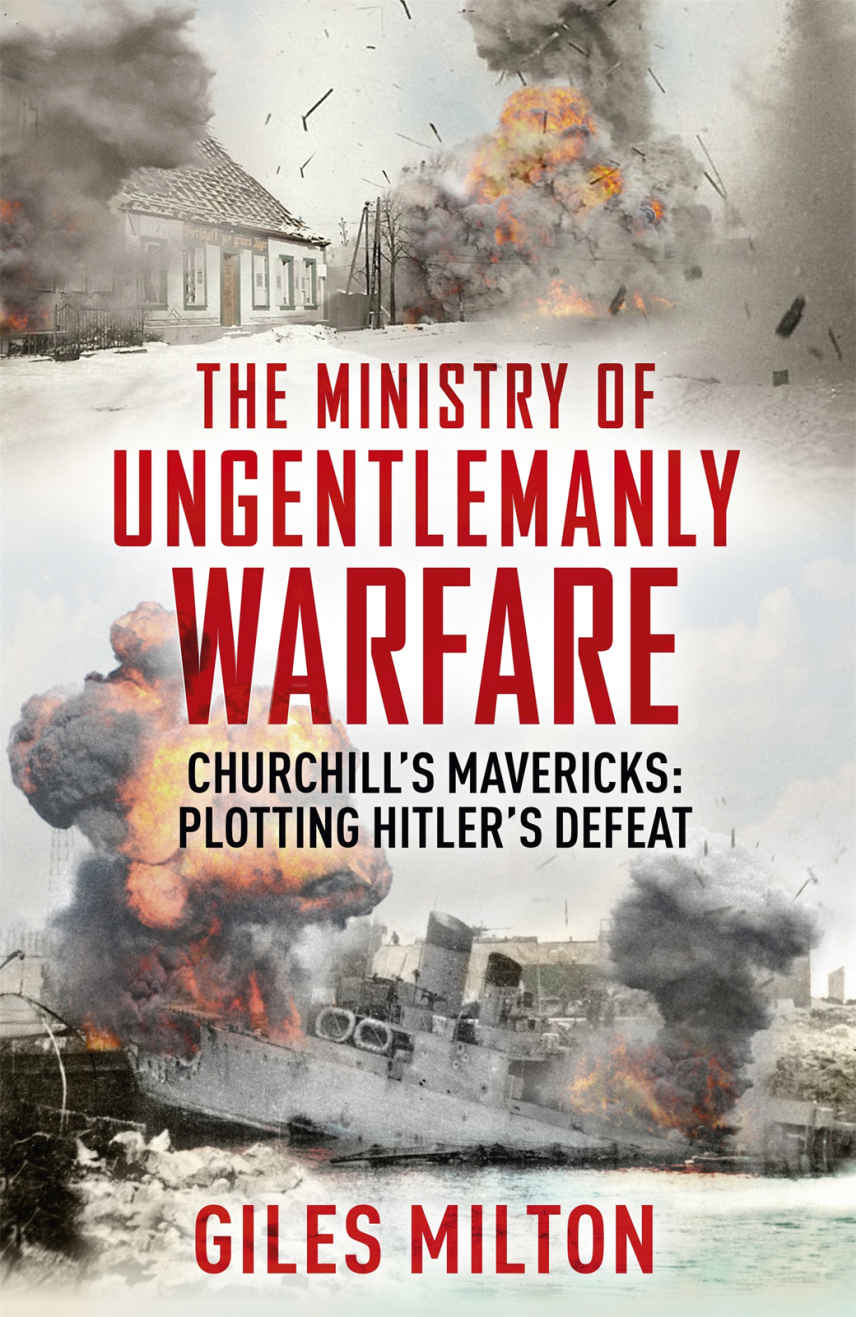Also by Giles Milton
NON-FICTION
The Riddle and the Knight
Nathaniels Nutmeg
Big Chief Elizabeth
Samurai William
White Gold
Paradise Lost
Wolfram
Russian Roulette
Fascinating Footnotes From History
FICTION
Edward Trencoms Nose
According to Arnold
The Perfect Corpse

www.johnmurray.co.uk
First published in Great Britain in 2016 by John Murray (Publishers)
An Hachette UK company
Copyright Giles Milton 2016
The right of Giles Milton to be identified as the Author of the Work has been asserted by him in accordance with the Copyright, Designs and Patents Act 1988.
All rights reserved.
No part of this publication may be reproduced, stored in a retrieval system, or transmitted, in any form or by any means without the prior written permission of the publisher.
A CIP catalogue record for this title is available from the British Library
ISBN 978-1-444-79897-5
John Murray (Publishers)
Carmelite House
50 Victoria Embankment
London EC4Y 0DZ
www.johnmurray.co.uk
For Simon,
ever the gentleman
Clive, my dear fellow, this is not a gentlemans war. This is a life and death struggle. You are fighting for your very existence against the most devilish idea ever created by a human brain Nazism. And if you lose there wont be a return match next year, perhaps not even for a hundred years!
The Life and Death of Colonel Blimp
Michael Powell and Emeric Pressburger
Contents
Prologue
T HE WORLD WAS going mad in the spring of 1939, or thats how it seemed to Joan Bright. A jaunty twenty-nine-year-old with swept-up hair and a button-down dress, she had travelled to London in search of secretarial work, having just turned down a job in Germany as governess to the children of Rudolf Hess, the Deputy Fhrer of the Third Reich.
When she mentioned her need for employment to an old friend, he gave her a strange piece of advice. He said he could get her work if she went to St Jamess Park Underground Station at 11a.m. on a certain day, wearing a pink carnation. He added that a lady would be waiting for her and would whisk her away for an interview.
Joan only half believed what her friend had said. Indeed as the day approached, she felt convinced that he was playing a practical joke. But she went to the rendezvous at the appointed time and, sure enough, there was the mystery woman. She offered a whispered introduction and pointed towards a red brick Edwardian mansion block in the distance, indicating that this was the building in which the job interview would take place.
Joan was led on a roundabout route to the building, passing through the maze of alleys and backstreets that lie between Broadway and St Jamess. Her dizzy imagination went into overdrive. She convinced herself that the woman had chosen the route quite deliberately in order to reach it unobserved. She still knew nothing about the job for which she was being interviewed, but had high hopes of acquitting herself well. She had previously worked at Chatham House, where her efficiency and discretion had left a deep impression on her colleagues.
Only as she was led up to the fourth floor of the residential mansion block did she realize that this was to be no ordinary job interview. She was ushered into an office that overlooked Caxton Street and introduced to a military officer by the name of Chidson, short, ginger and very precise. He gave a cursory introduction and then slid a sheet of paper across the desk and told her to sign it. She was too nervous to ask what it was. She simply scribbled her name at the bottom and handed it back to the colonel. As she did so, she noticed that she had just signed the Official Secrets Act.
Colonel Chidson took the paper, fixed his steely eye on Joan and asked if she knew why she had been brought to Caxton Street. When she shook her head, he told her that she was being interviewed for a job so secret that she would be tortured if she were ever to be captured by the Germans.
Joan was completely lost for words. She had been expecting to be tested on her typing skills, her shorthand and her ability to make a good strong cup of tea. In the silence that followed, Chidson got up from his seat, beckoned her over to the window and pointed towards a shadowy figure standing on the corner of Caxton Street and Broadway.
He has been there all morning, watching, he said. When you leave here, dont let him see you; turn left and keep going.
Joan had not yet been offered a job, at least not formally, and yet the manner in which the colonel was speaking suggested that she had already been accepted. He asked her to be seated and once again reiterated that very dreadful things would happen to her if she were to be caught by the Germans. This time, he was rather more specific. You will get needles up your toenails.
Half of her wanted to treat the whole thing as a grand hoot, one to recount to her flatmate, Clodagh Alleyn, later that evening. Yet Colonel Chidson remained cold and unsmiling throughout the interview, which Joan took as a sign that he was in deadly earnest. She also knew that in the newspapers and on the wireless the talk was of nothing but war.
Just a few weeks earlier, on 15 March, Hitler had scored his latest coup by marching his storm-troopers into Bohemia and Moravia. In doing so, he completed his annexation of what had previously been Czechoslovakia. The German soldiers met with so little resistance that a jubilant Hitler was able to travel to Prague on the following day and proclaim a new addition to the Third Reich. Henceforth, Bohemia and Moravia were to be a German protectorate, firmly under the rule of Berlin. Although Britains Prime Minister, Neville Chamberlain, insisted that Hitlers annexation was not an act of aggression, there were many in the country who felt that his policy of appeasement had passed its sell-by date.
Joan was among those who felt a deep sense of unease, worried that Britain was being dragged into a conflict for which it was woefully ill-prepared. But when she weighed up everything that shed been told by Colonel Chidson, the prospect of full-time employment and a generous salary overrode all her fears about the future. Besides, she was young, unattached and fancy-free. And a strange job in a strange office might just add to the gaiety of life. She convinced herself that it was all good clean fun and thanked the colonel for what she assumed to be the offer of employment. She promised to show up for work punctually on the following morning.
Although she would have never admitted it to Colonel Chidson, she was rather excited to be joining an office in which fact and fiction played so smoothly together. Yet she couldnt help but quicken her pace as she emerged from the building into Caxton Street, and she studiously avoided catching the eye of the mysterious man who was still standing on the street corner.
Joan would have to wait another twenty-four hours before learning what her new occupation entailed. In the intervening time, she could do little more than ponder over the strange situation in which she found herself. She felt torn between happiness at having a job and a vague sense of unease at what that job might involve. It was as if someone were leading her into a bizarre twilight world in which all the cherished norms had been subverted.


